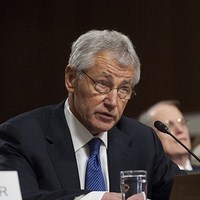During his recent visit to South Asia, U.S. Defense Secretary Chuck Hagel focused on securing a formal agreement to keep U.S. forces in Afghanistan beyond 2014 and an informal accord to continue drone strikes in Pakistan. These are both important topics, but U.S. policymakers need to devote more attention to other issues that could have an even greater impact on U.S. interests in the South Asian region in coming years.
While in Kabul, Hagel did not even try to meet Afghan President Hamid Karzai, who has been adding new conditions for a renewal of the Afghan-U.S. status of forces agreement that gives American forces operating in Afghanistan immunity from local laws. Without the renewal, all U.S. forces will leave Afghanistan in a year, followed by other foreign troops that would not remain without a continued U.S. presence. Hagel said that Afghanistan would need to ratify the new agreement before a NATO ministerial meeting in February to avert the implementation of the alliance’s "zero option" contingency plan.
U.S. and NATO officials have also warned that all Western military assistance could end if the alliance no longer had a troop presence on the ground to assure the proper use of foreign aid in a country known for high corruption and poor administration. An aid cut-off could prove disastrous for the Afghan National Security Forces (ANSF), which still desperately need Western training and equipment. The ANSF has made considerable progress in recent years, but needs NATO’s help in developing more-effective logistics, intelligence and other critical enabling capabilities.

